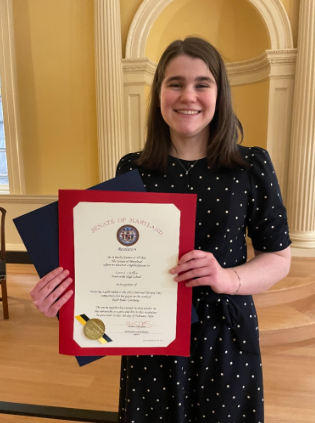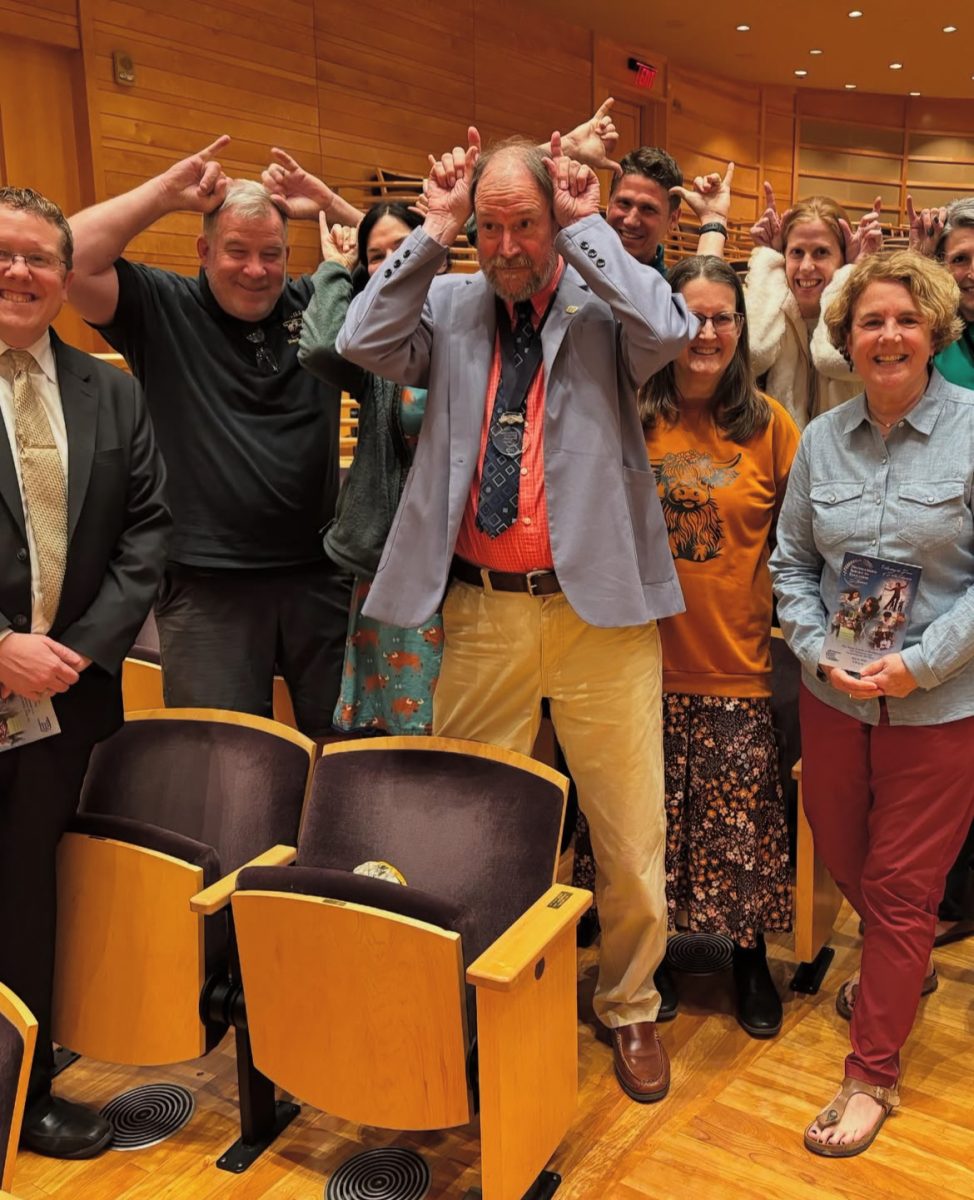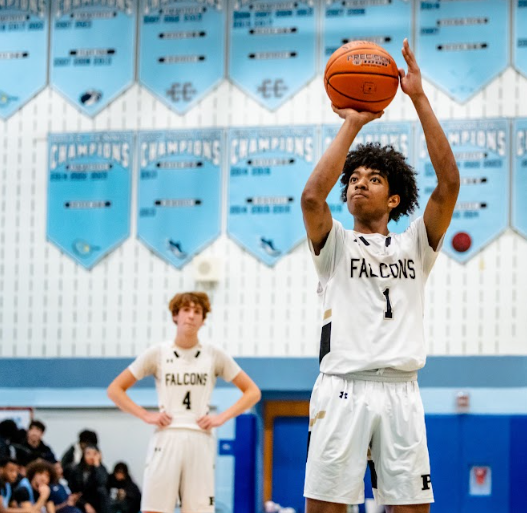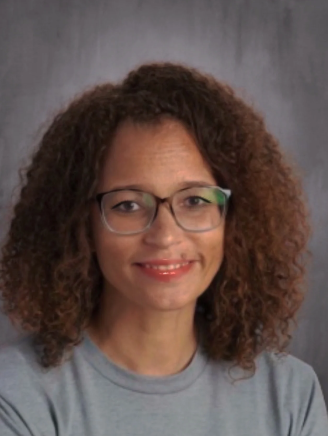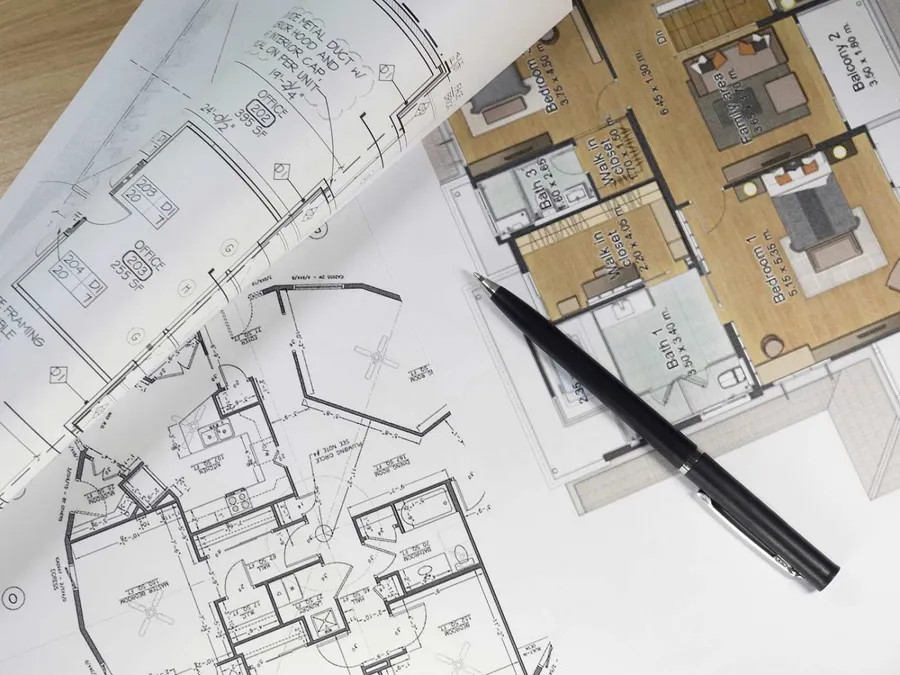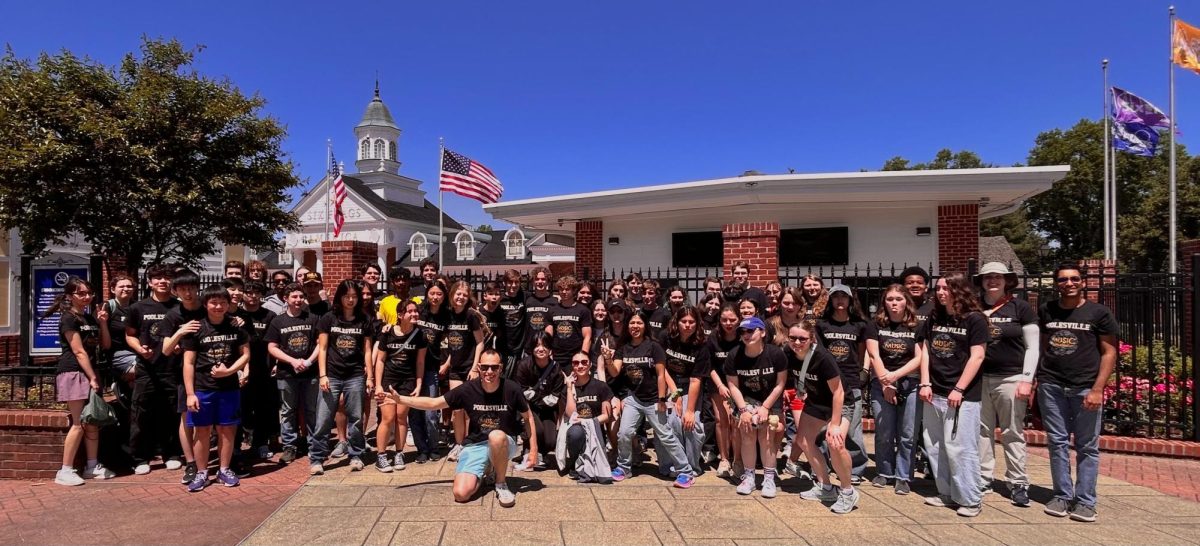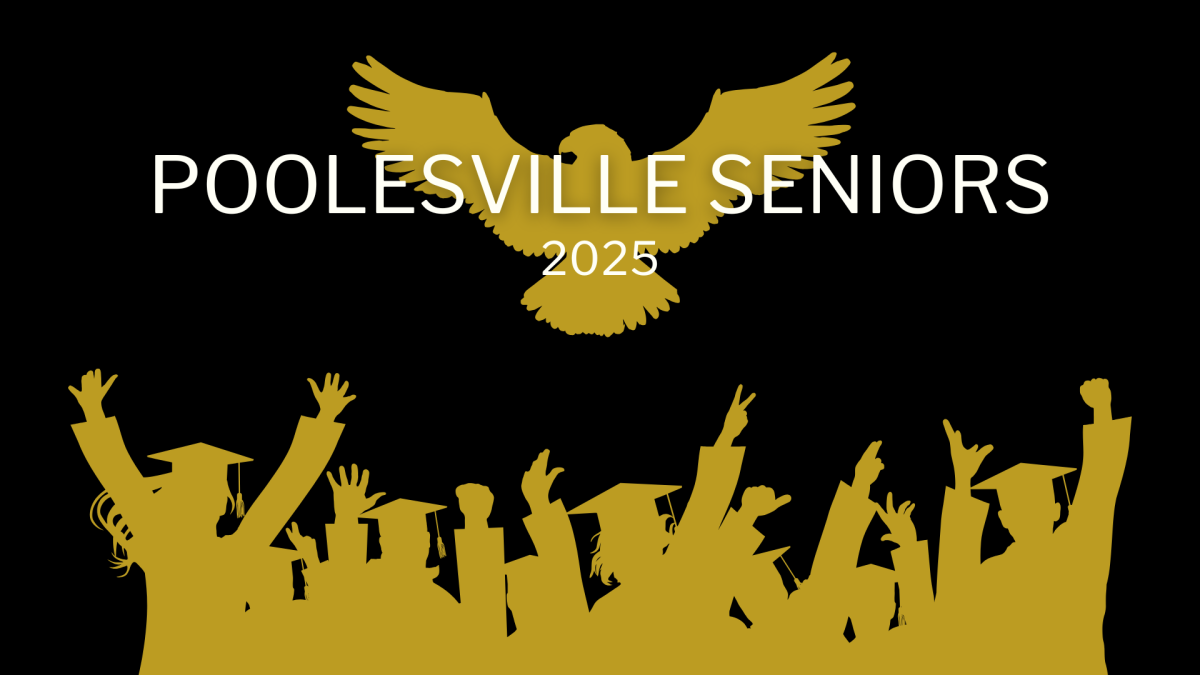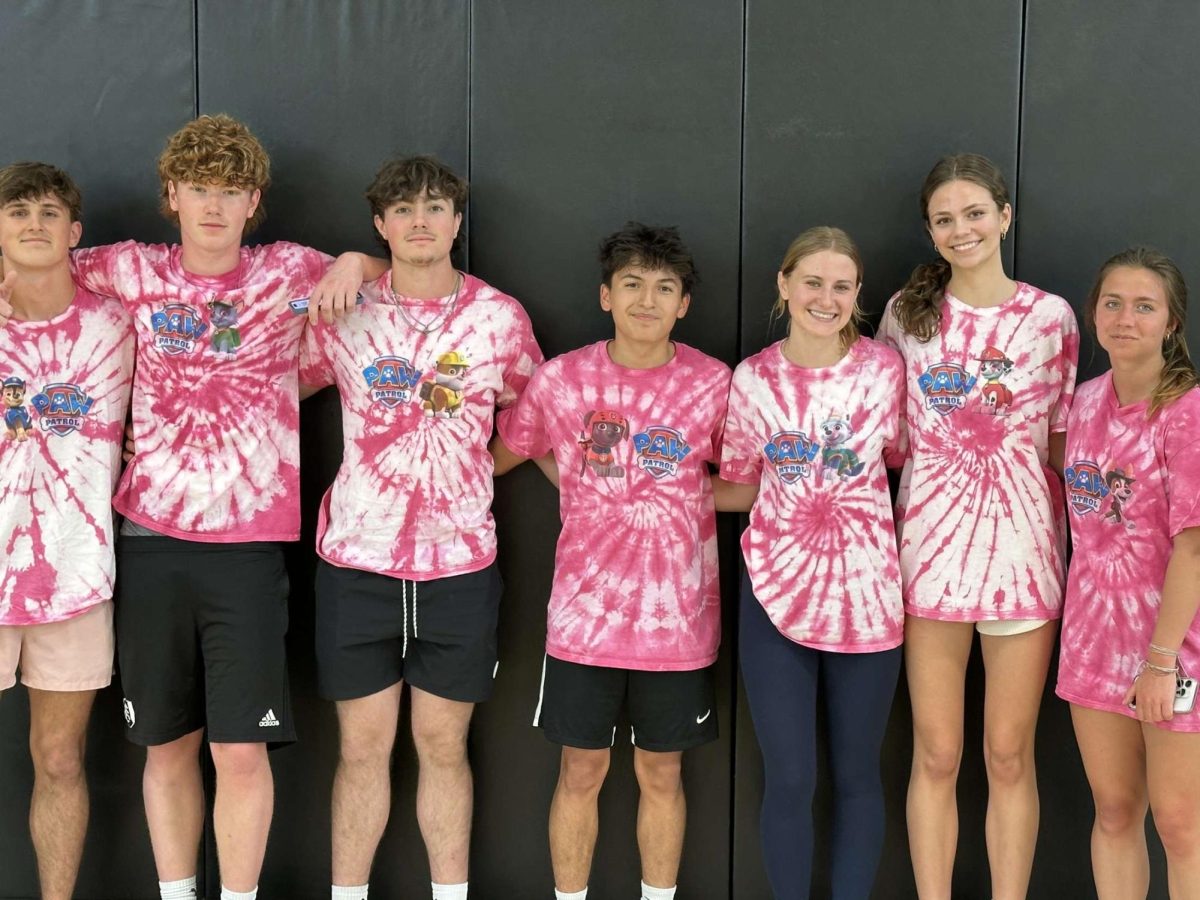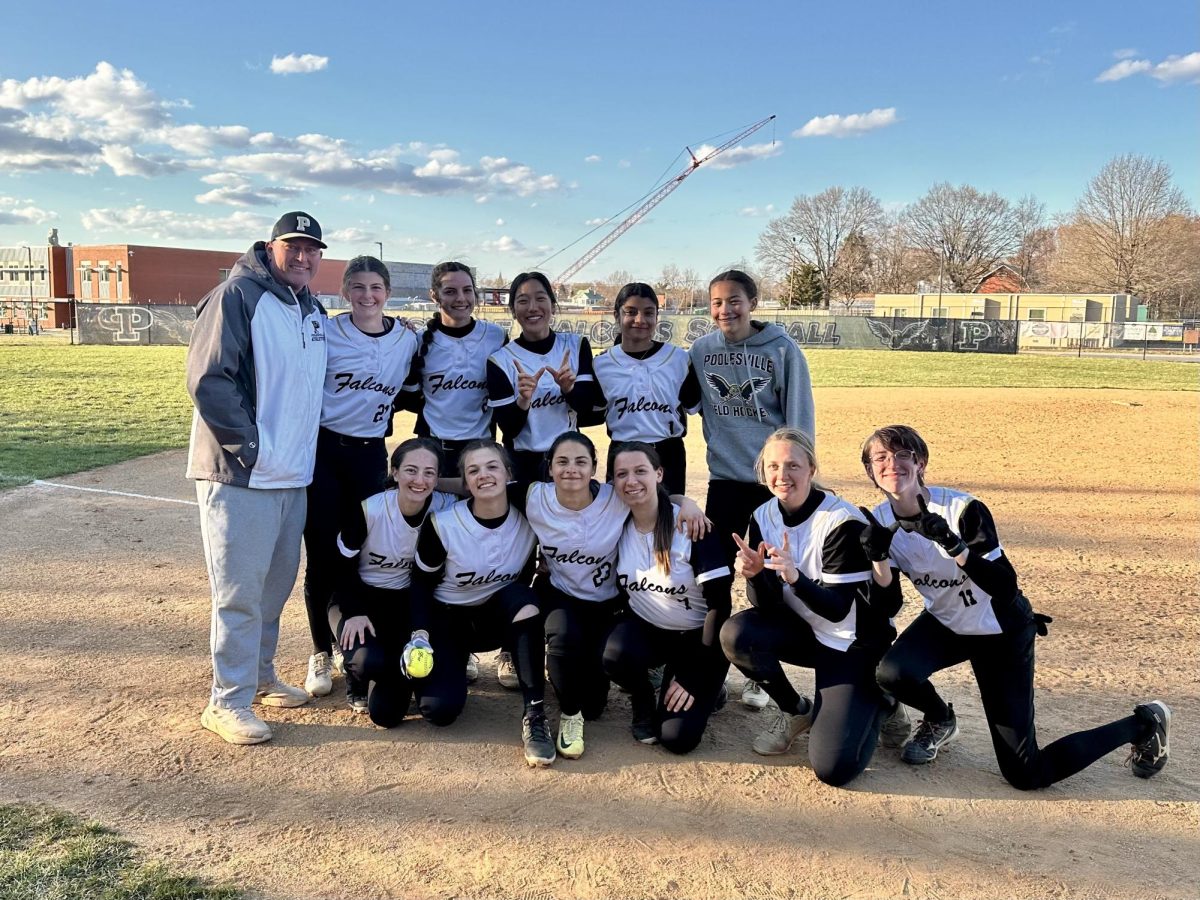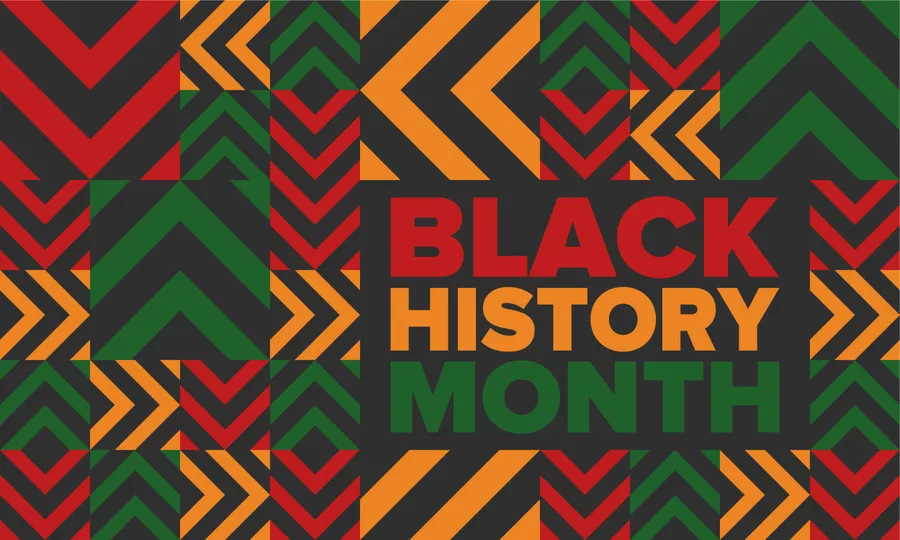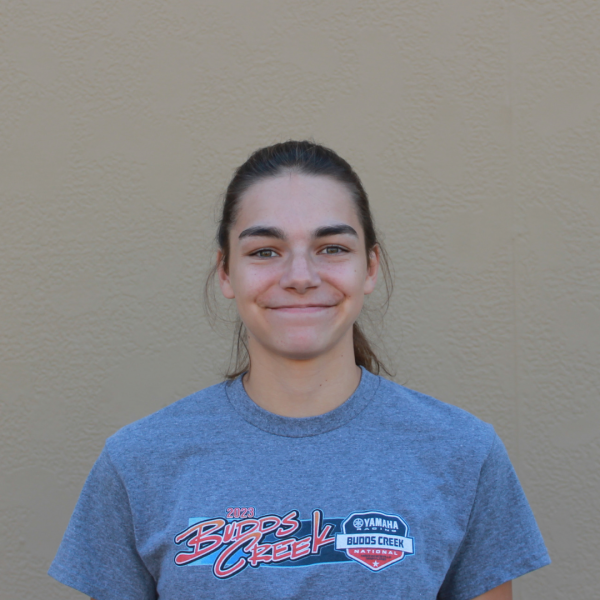What is National History Day (NHD)?
National History Day is a year-long research and writing program in which participants create a paper, exhibit, documentary, performance, or website on a topic of historical significance that exemplifies the yearly theme. In my freshman year last year, the NHD theme was Frontiers in History. Humanities freshmen are required to write a paper, while Humanities juniors can choose any of the other four categories. We research for about three months before we even start putting the project together. We then have the choice to enter our projects in the school NHD competition. The top two students in each category in the school competition advance to the county competition, and the same process is followed for advancement from the county contest to the state contest and from the state contest to the national contest.
What was your NHD paper about?
My NHD paper is titled “Ruth Bader Ginsburg on the Frontier of Gender Roles in America.” I argued that Ginsburg’s legal work in the 1970s marked a major advancement for women’s rights, propelled by the novel legal strategy she developed to systematically dismantle the legal enforcement of societal gender roles. These successes and legal precedents paved the way for America to cross a new social frontier that dramatically changed the societal roles of both men and women and would eventually become Ruth Bader Ginsburg’s greatest legacy.
What is remarkable about Ginsburg’s strategy is that it highlighted how men were harmed by gender discrimination in the law, and then used that precedent to argue for women’s rights. Before her work in this area began, women were ridiculed by psychologists and popular writers for even thinking of developing a career. Men whose wives had died were encouraged to put their babies up for adoption because no one believed a man could take care of a child as well as a woman could. Ginsburg argued for all rights, women’s and men’s, and in doing so, undermined society’s perception of “men’s work” and “women’s work.” She proved that the barriers that kept women from working harmed men, and the barriers that kept men from caring for children harmed families. Ginsburg’s strategy was to show the unintended negative consequences of strict gender roles in small steps which would expose the Court to these new ideas and move the Justices incrementally toward her goal: the recognition of all gender-based distinctions in the law as unconstitutional.
Why did you choose this topic for your paper?
I chose a legal topic because I was interested in exploring the ways that the legal system affects our everyday lives. When I learned how Ruth Bader Ginsburg used the legal system to convince the courts incrementally that gender discrimination was both real and unconstitutional, I knew I wanted to explore this topic further.
How long did you work on this paper?
I worked on this paper from October 2022 to June 2023. After the two and a half months of initial research, I started outlining my paper in January. I finished my paper, annotated bibliography, and process paper by early February. This was the draft I submitted to the school competition. NHD is structured so that students are able to make edits between competitions based on feedback received from the judges at each stage. Because of this system, I continued to write and do more research between February and June of 2023. It was hard work, but my paper improved so much in those months!
Who inspired you along your route to gold?
My biggest inspiration was Ruth Bader Ginsburg herself. I was saddened by the circumstances that surrounded her death just weeks before a presidential election– her vacant Supreme Court seat overshadowed her legacy in the law spanning six decades. I wanted my project to raise awareness about the amazing legal project she took on in the 1970s, as a woman lawyer who used her position and brilliance to better the lives of women everywhere. I’d like to think she’d be happy to know that America hasn’t forgotten her early legal accomplishments, which are just as meaningful and far-reaching as the decisions and dissents she wrote as a Supreme Court Justice.
Who supported you along your route to gold?
I received a ton of support from Ms. Blair, Ms. Wilder, Ms. Marshall, and all the Humanities 9 teachers, Ms. Marks, Ms. Van Yuga, and Mr. Ward. Whenever I had a question about citations or organization, these teachers were more than willing to help guide me and keep my confidence up! My classmates were also very encouraging. They were so supportive of me while I was working on my paper and so happy for me when I moved on through each level of the competition!
What was your reaction to winning gold at nationals?
I felt confident in my paper and in my interview with the judges, but there were nearly a hundred student papers competing at the national competition and I didn’t want to get my hopes up. The awards ceremony was in the University of Maryland basketball arena, and it was packed. I saw all these competitors much older than I was, and I was pretty nervous. When I heard my name, it didn’t feel real. I stood up slowly as my family and everyone around me cheered. I ran across the basketball court to receive my medal. I was so excited and absolutely exhausted from both the week of events and the interview at the national competition and the months of effort and hard work that preceded it. It had all paid off!
What was the process leading up to being honored?
In December I received an email inviting me and the other Maryland competitors who either placed nationally or won a special award at the national competition to be recognized by the Maryland General Assembly at the Maryland State House. On February 5, we met for dinner at a restaurant in Annapolis, and then we walked to the State House. We met with several State Senators and Delegates individually and had conversations with them about our projects. The legislators were very encouraging and interested in what we had to say! We took a group photo, then prepared to enter the Maryland House of Delegates chamber. We stood on the balcony and waved when our names were announced. In the Senate chamber, we actually stood on the floor of the chamber and received our citations!
How was it being honored at the Maryland General Assembly?
I was so proud to be there, and I was honored to be recognized by the Maryland General Assembly for this accomplishment. It felt like everything was coming full circle. I had worked so hard on my project for nine months, and it took me to the floor of the Maryland Senate Chamber!


